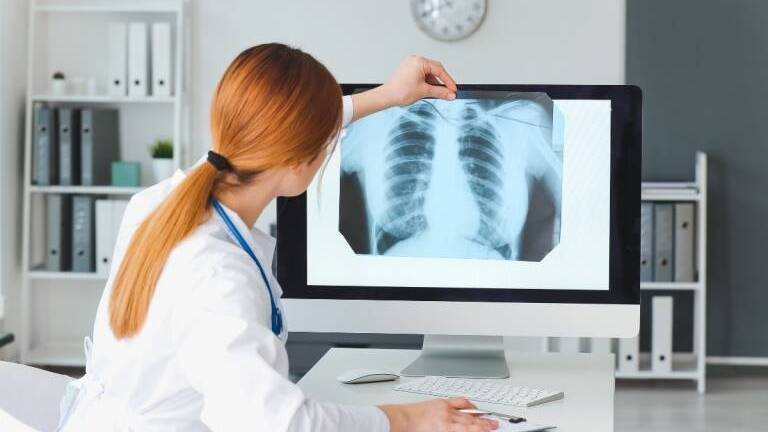66.7% of European lung cancer patients say they experience financial difficulties due to the disease

VALENCIA (EP). According to a report prepared by Lung Cancer Europe (LuCE), 66.7 percent of European lung cancer patients said they experienced financial difficulties due to the costs associated with the disease, which also has a “direct negative impact on mental health”. ).
“We’ve seen mainly that this has had a very direct negative impact on mental health and the issues of anxiety, depression and distress that arise from lack of income for patients. This impacted symptoms of anxiety, depression, and how social activities and relationships were managed, and even physical well-being,” he said. Alfonso Aguaron TurrientesLuCE Public Policy Coordination, during the 9th Forum on Lung Cancer, organized by the Spanish Association of Lung Cancer Patients (AEACaP) and the MORE QUE IDEAS Foundation.
The study shows that 73.5 percent of patients had medical expenses, and 87.2 percent had to do so for non-medical reasons, such as travel, household or personal care bills.
For these reasons, 62.9 percent of those surveyed had experienced a decline in household income since diagnosis, more than half of them, more than a third, and leading to 45.7 percent saying they had difficulty paying cancer-related expenses lungs. In addition, 36.8 percent admitted that they find it difficult to live on their family’s income.
These financial problems mean that 88.4 percent of those who experience them perceive a “negative impact” on their lives, highlighting the impact on mental health (67.5 percent) and social functioning (59 percent) or self-care (26 percent). .5 percent).
Despite this, 39.2 percent of participants assured that there was no financial assistance or subsidies for people with cancer in their countries, as many were unable to get the support they sought from the health system or social services.
The main sources of support for respondents are their loved ones (30.4 percent), the health care system (21.6 percent) and social services (20.6 percent).
The diagnosis is similar to a “tsunami”.
For his part, Vice President of the Spanish Association of Lung Cancer Patients (AEACaP) and Lung Cancer Patients, Maria Angeles Marin Rodriguezstated during the event that his diagnosis “affected everything.”
“A diagnosis of lung cancer is a tsunami that takes away everything. Economy, family, health, obviously, the world of work, everything,” Rodriguez explained, emphasizing that he had to stop working on the recommendation of his pulmonologist and himself. oncologist.
The AECaP Vice President emphasized that there are many non-medical costs associated with the disease, such as travel to the hospital and even eating out depending on the time of the appointment.
Similarly, he talked about other types of costs associated with side effects from treating conditions for which there are other treatments, “many of which” are not included in the NHS.
“If you need corticosteroid cream because you have a very serious dermatological problem, it’s included. But if you need some kind of moisturizer or some kind of oral product because you have canker sores, that’s not included.” he added.
Although these products are inexpensive, the problem arises when these expenses are made over a long period of time, and Rodrigues emphasized that “in the end you do the math and spend 100 or 200 euros a month, and on top of that you earn less money.”
This situation means that “not everyone can take it even for the first month” and that many patients cannot use treatment for side effects “because they cannot afford it.”
Need for psychological support
On the other hand, Rodriguez emphasized the need for the patient to be accompanied throughout the entire process by a psychologist, as well as other specialists, to ensure interdisciplinary support.
“There are people who cope with it more or less well, because we have the ability to adapt, but there are people who don’t (…) and they need a psychologist, just like you have an oncologist, psychologist sitting next to them, but that’s not true,” he said.
In addition, he emphasized that physical oncologists are also needed for patients with bone metastases, as in his case, because in such cases, “not just any physical therapist can touch your back.”
“Physical therapy is necessary. This is important because often we have pain and problems associated with the disease that are not the disease itself, but still limit you,” he added.
On nutrition, he talked about the “millions of hoaxes” about it and how the need for a special diet for lung cancer patients requires the support of a nutritionist.
